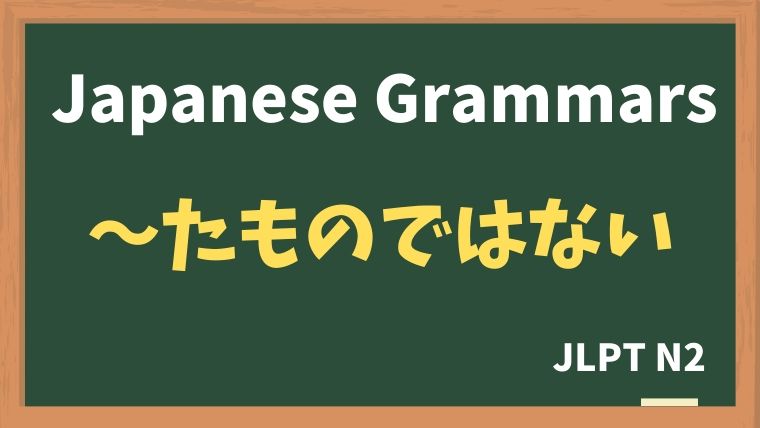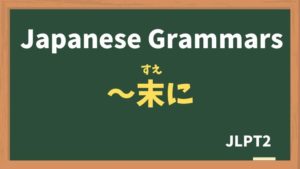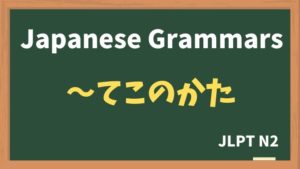
Explanation:〜たものではない
fa-check-circleMeaning
"とてもひどくて〜できない"
Used to indicate that something is not worth doing, not good, or unbearable. It often conveys a strong negative opinion or dissatisfaction about something.
fa-check-circleForm
V(ta form) + ものではない
fa-check-circlePoints
- Negative Evaluation: This phrase expresses the speaker’s opinion that something is undesirable, unbearable, or not worth experiencing.
- Strong Subjectivity: The expression conveys a subjective judgment, often implying that the situation is so bad it’s difficult to tolerate.
- Formal Tone: It is often used in a formal or serious context, although it can appear in casual conversations when the speaker is strongly expressing a negative feeling.
fa-check-circleJLPT Level
N2
fa-check-circleJLPT Level
The casual way of saying "〜たものではない" is "〜たもんじゃない"
Sample sentenes
こんなまずい料理食べられたもんじゃない。
I can't eat such terrible food.
こんなぬるいビール、飲めたもんじゃない。
I can't drink such lukewarm beer.
こんな料理、お客様に出せたものではありません。もっと練習しなさい。
You can't serve such a dish to customers. You need to practice more.
このジュース、健康にいいらしいけど、すっぱすぎて、飲めたもんじゃない。
This juice is supposed to be healthy, but it's too sour to drink.
この俳優の演技はひどすぎて、見れたもんじゃない。
The acting of this actor is so bad that it's unbearable to watch.
Vocabulary
| Japanese |
English | |
| 演技 | えんぎ | act |
| 酷い | ひどい | terrible |






